MTSU has taken its first steps toward changing the narrative about aging from the negative to the positive.
The university’s inaugural Positive Aging Conference welcomed about 100 participants to the Miller Education Center June 10 for a day of upbeat speeches and conversations about growing older in America.
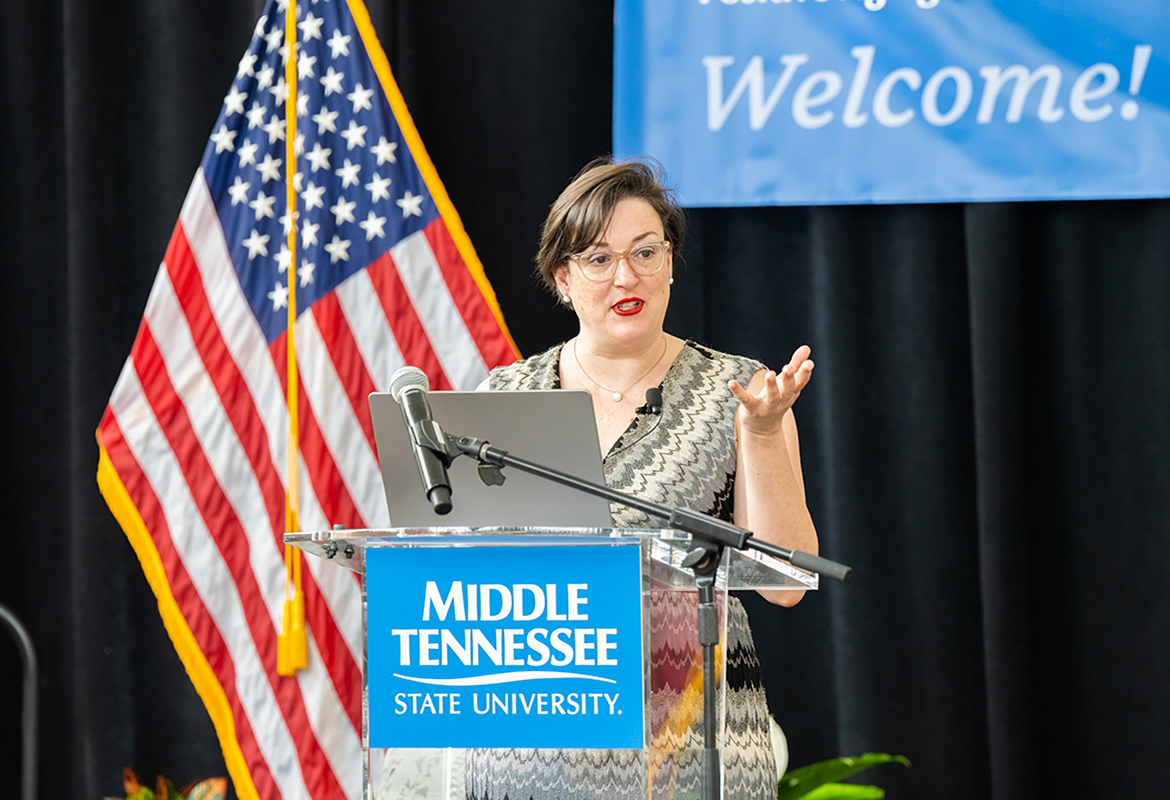
Keynote speaker Julie Sweetland, Ph.D., of Frameworks Institute explained how sociological experiments designed to detect implicit bias against older persons help activists understand society’s attitudes toward them.
“If people equate aging with a process of decline, they are less likely to identify themselves as aging,” Sweetland said. “They’re less likely to support good aging policy, and they are less likely to connect aging to other social issues that they actually care about quite a bit.”

Sweetland proceeded to call for changing the language used in public discourse from one of exclusion and paternalism to one of inclusion and possibilities. Finally, Sweetland advised telling a new story about what aging is like by encouraging businesses and governments to revamp their advertising and marketing.
She cited examples from both the public and private sectors. Allure, a popular magazine, has decided not to use the word “anti-aging” in articles and ads about beauty products. The city of Boston has changed the name of a municipal bus line that gives rides to older citizens from the “Senior Shuttle” to “Transporting Boston’s Most Experienced People.”
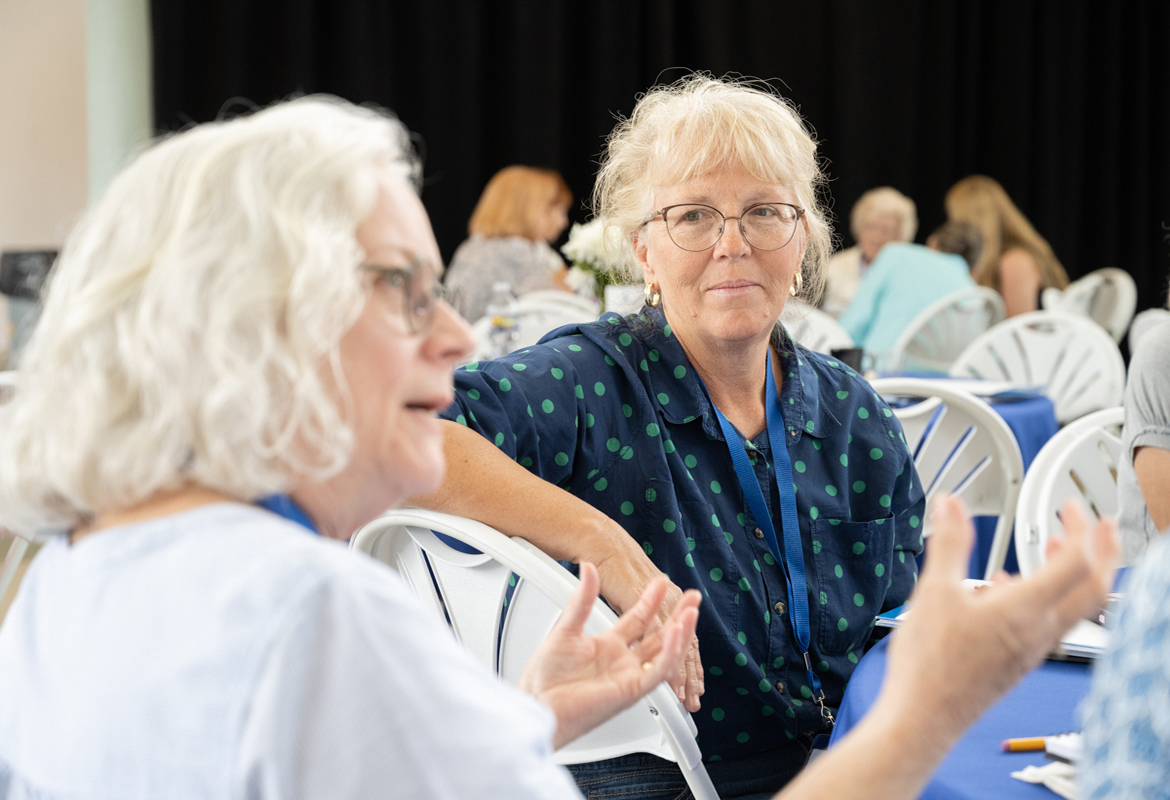
Paula Daigle, community engagement director of AgeWell Middle Tennessee, said she likes Boston’s initiative, but promoting a more progressive attitude toward older people in Middle Tennessee can be a challenge.
“In Middle Tennessee, we are still trying to establish the value of older adults to our community,” Daigle said. “It’s been kind of an uphill battle, but we’re determined through our example and through our partner agencies.”
Chris Delele, a retired 74-year-old who attended the conference, said she was especially grateful for the breakout session on “Financial Decision Making and Scamming.”
“That’s always on my mind, every time I look at anything on my phone or the internet,” Delele said. “I know nothing, so any bit of information that can be given to me is going to increase my knowledge so much more.”
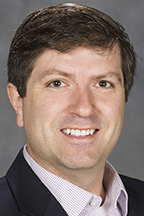
Keith Gamble, an MTSU economics and finance professor who hosted that session, outlined several examples of scams that specifically target older people and pointed out that fraud is a booming business.
“The federal government does try and keep track of frauds in the United States, which exceed $2 billion a year,” Gamble said. “Tennesseans were defrauded (out of) $40.5 million in the year 2020…That doesn’t count all the scams that they don’t know about yet.”
Other sessions featured MTSU faculty discussing keeping the brain healthy, keeping the body healthy and using tower gardens to grow healthy produce.
Premier conference sponsors were Humana and National Health Care. Other non-university sponsors included Ascension St. Thomas, Takacs McGinnis Elder Care Law, Select Physical Therapy and Trust Point Hospital.
— Gina K. Logue (gina.logue@mtsu.edu)
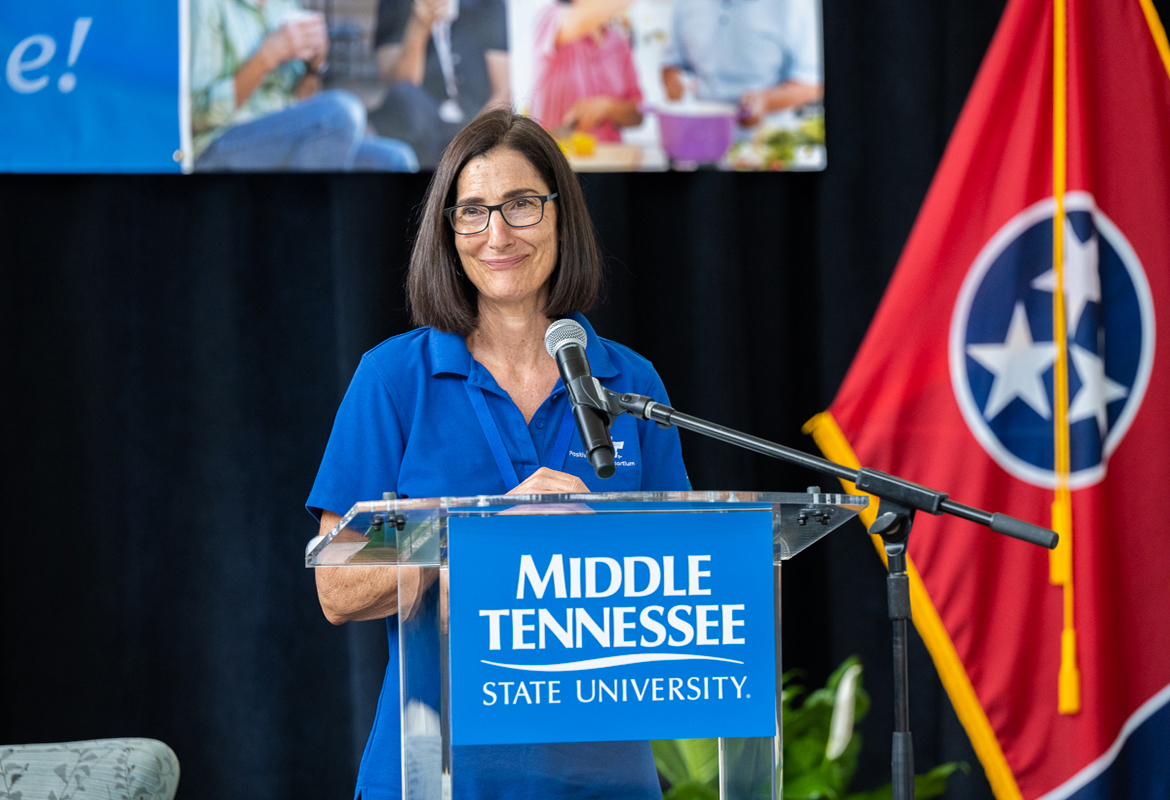
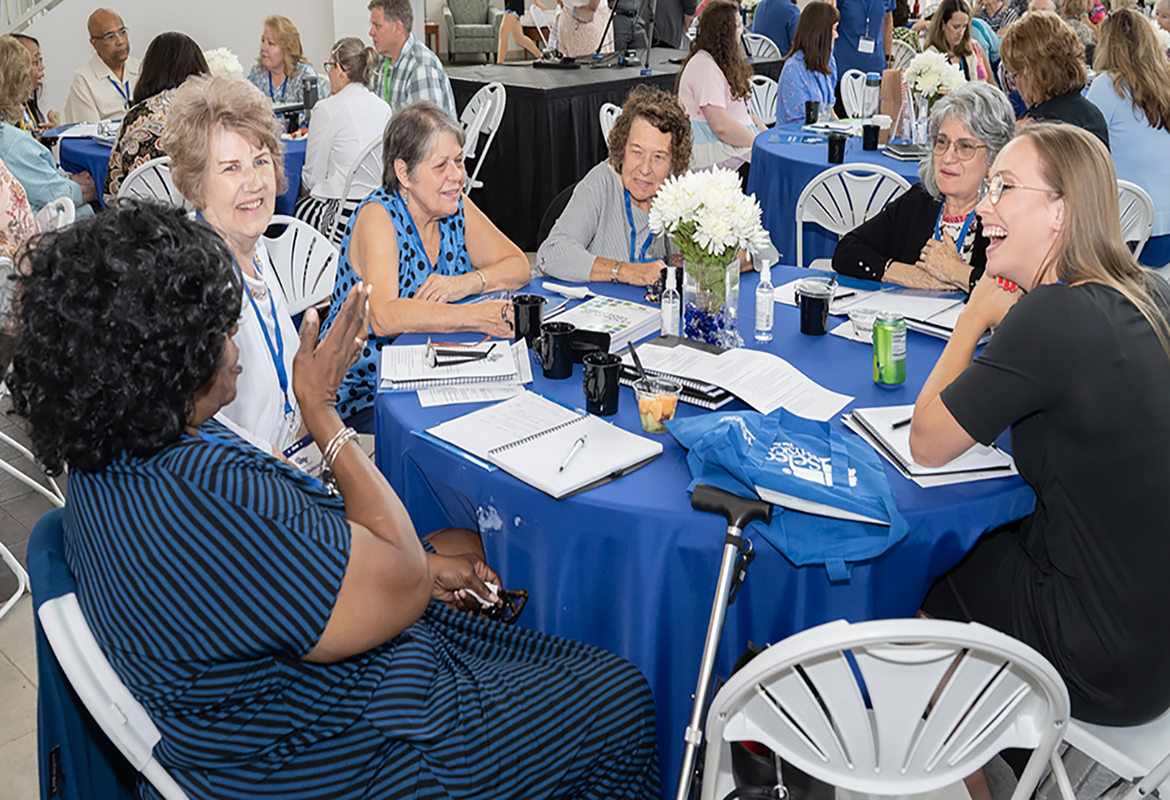

COMMENTS ARE OFF THIS POST